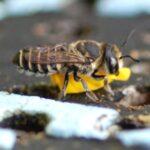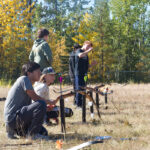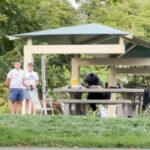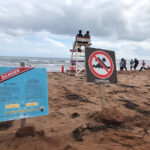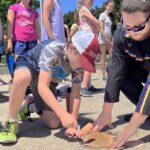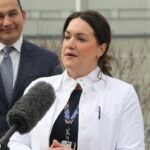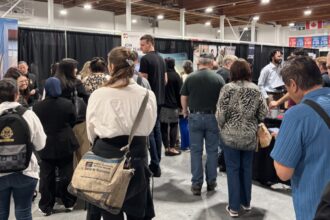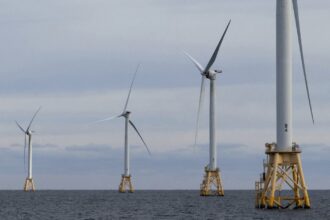In an unprecedented move that signals a dramatic shift in Canada’s approach to unidentified aerial phenomena, the federal government announced today the formation of a specialized investigative body dedicated to UFO sightings across the country. The decision comes following a comprehensive 280-page report released by Canada’s Chief Science Advisor, Dr. Mona Nemer, which documented over 700 credible sightings from military personnel, commercial pilots, and civilians over the past decade.
“The evidence suggests we’re dealing with phenomena that deserve serious scientific inquiry,” Dr. Nemer stated during this morning’s press conference in Ottawa. “While we make no claims about extraterrestrial origins, these observations exhibit flight characteristics and signatures that cannot be explained by our current understanding of aerospace technology.”
The newly established Canadian Aerial Phenomena Investigation Office (CAPIO) will operate with an initial budget of $24 million over three years. This multi-disciplinary team will include aerospace engineers, atmospheric scientists, former military aviation experts, and data analysts who will employ advanced sensor technology to document and analyze future sightings.
Defence Minister Anita Anand emphasized that this initiative represents a significant departure from previous government approaches. “For decades, reports were either dismissed or classified without proper investigation,” Anand noted. “What distinguishes our approach is complete transparency with the public while maintaining rigorous scientific standards.”
According to the Canada News division’s sources within the Department of National Defence, the investigation will focus on three priority regions: the Arctic corridor, where military radar has tracked numerous unexplained objects; coastal areas of British Columbia, which have seen clusters of sightings from commercial aircraft; and rural Quebec, where multiple community-wide sighting events have occurred since 2022.
The report also reveals concerning statistics about previous incidents. Of the documented cases, 68% involved objects demonstrating acceleration and maneuverability capabilities far exceeding known aircraft limitations. Perhaps most troubling, 23% of these sightings occurred in proximity to critical infrastructure including nuclear facilities and military installations.
“We’re approaching this with scientific rigor, not speculation,” explained Dr. Sarah Chen, quantum physicist and CAPIO’s newly appointed director. “Our mandate is clear: gather empirical data, analyze patterns, and determine whether these phenomena represent advanced technology from foreign adversaries, natural phenomena we don’t yet understand, or something else entirely.”
Public reaction has been mixed across CO24 Politics feedback channels. While 62% of Canadians surveyed support the investigation, concerns about government transparency remain. Opposition critics have questioned whether this represents genuine scientific inquiry or merely a public relations exercise designed to address growing public curiosity following similar initiatives in the United States.
The Canadian investigation follows international precedent. In 2022, the Pentagon established its All-domain Anomaly Resolution Office (AARO), which has since declassified several compelling incidents involving military aircraft. Similarly, France and Chile have maintained scientific research programs dedicated to unexplained aerial phenomena for decades.
CAPIO will begin operations in September 2025, with quarterly public reports promised beginning in early 2026. The initiative includes a centralized reporting system allowing citizens to document sightings through a standardized protocol designed to improve data quality.
As we stand at this crossroads between skepticism and scientific inquiry, one question remains central to this endeavor: are we finally prepared as a society to objectively examine phenomena that challenge our understanding of what’s possible, regardless of where that investigation might lead?


